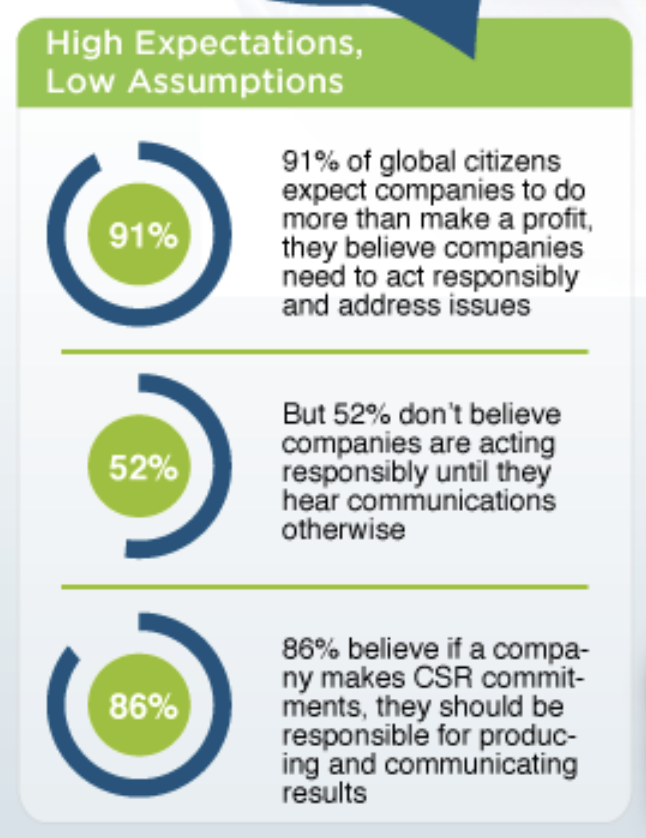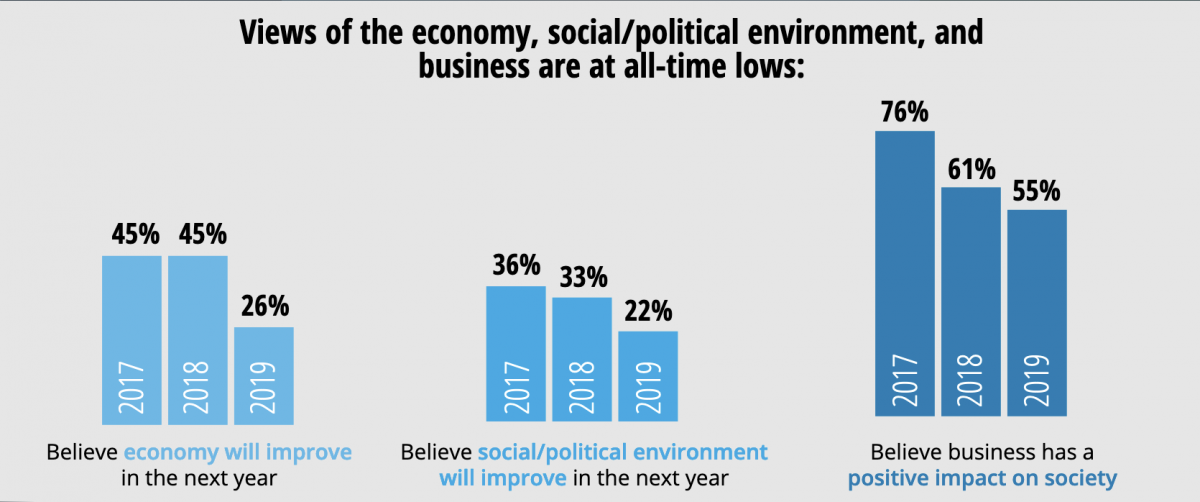
Every company aspires to be known, and its brand elicits positive feelings from potential clients. This is partly what is known as brand awareness. Every enterprise wants the general public to be well informed regarding what its product does and what it stands for.
With changes in technology and how people come about information, advertising has also taken a shift. Millions of dollars have been poured into advertising to ensure that the targeted audience knows about the brand. More people recognize ads that are pushed down their throats, and these days, there are now options to skip ads.
"With the speed that crowd-sourced, social media commentary now has to influence public opinion, and with the Millennials' 'brand wash' radars better attuned than ever to fake news, greenwash, and brand spin, we can only expect consumers' expectations on purpose and shared values to rise," an article from Business Fights Poverty said.
Another way progressive companies have employed to get brand awareness is to devote their spending to community initiatives that address current challenges. These include being active in climate change initiatives, supporting small-scale traders, voicing the issues women and minority groups go through, or being part of an environmental campaign.
It is an understatement as to what positive brand awareness can emanate from championing positive social impact projects, not just for a season but also for the long haul. How can businesses change their perspective towards "Impact Marketing"?
Not Just About Profits
 Today's consumer does not care about companies or brands that ultimately push their product to the market. The neo-consumers respond better to a brand that takes time to go beyond their purview and create meaning in today's world.
Today's consumer does not care about companies or brands that ultimately push their product to the market. The neo-consumers respond better to a brand that takes time to go beyond their purview and create meaning in today's world.
Over 90% of global consumers expect companies to do more than make a profit and operate responsibly to address social and environmental issues, a 2015 research by Cone Communications/Ebiquity Global CSR Study states.

"When it comes to purchasing with a cause in mind, consumers say they consistently seek out responsible products, but they are not necessarily following through with action. Companies can help consumers close this gap by not only giving them more opportunities to act but also through translating how their purchases can create personal impact," the study continues.
A brand's survival clearly will rely on how it sits in the consumer's memory. When a business cares about the environment and does something visible in the consumers' lives, its sentiments grow in favor of the spending consumer.
Eighty-four percent of global consumers say that they try to purchase products or services that are socially or environmentally responsible whenever possible. But their thirst for these products has not yet been satiated. This presents an opportunity for companies to provide consumers with the responsible options they've been clamoring for, the Cone Communications research states.
"While it may seem counter-intuitive to not include the profit motive – after all, what will shareholders think? – the benefits are clear. Having a purpose is not about forgetting about profits; it's about changing how you think about the positive outcomes that happen when you make profits," Emotive Brands states.
It continues that emotional impact with its audience derived from meaningful outcomes the brand produces through its products, policies, procedures, and behaviors.
"The outcomes to which the purpose points are the positive impacts that are made by the brand across the personal, social, or environmental realms," it asserts.
What the New Consumers Want

A recent survey done by Clutch in the US stated that seventy percent (70%) of Generation Xers (ages 35-54) and 54% of millennials (ages 18-34) are likely to stop shopping at a company that supports an issue they disagree with compared to 37% of baby boomers (ages 55+)."
The consumer age is becoming younger and younger. These new consumers have different needs than the previous generations. This means that brands should be aware and change their values according to the needs of the new consumers.
The Clutch survey added that "Three-fourths of people (75%) are likely to start shopping at a company that chooses to support an issue they agree with."
Deloitte's research: The Deloitte Global Millennial Survey 2019 carries insights into Millennials' new demands on brands.
"Millennials' opinions about business continue to diminish. This showing is driven, in part, by growing views that businesses focus on their own agendas rather than considering wider society—76 percent agree with that sentiment—and that they have no ambition beyond wanting to make money (64 percent agree). It also is likely influenced by a continuing misalignment between millennials' priorities and what they perceived to be business's purpose," the research said.
The same research also stated that the consumer's needs are becoming diverse. This means brands have their work cut out to determine what their consumers care about in the community and respond appropriately. More people of other races and nationalities are entering the global marketplace. Diverse voices that were never heard before are growing their disposable income.

Social needs are shaping the things people buy from us. These needs keep on changing with the demographic. In-depth research is needed to understand the new consumer if a brand's name remains relevant.
World Economic Forum's report also states the changing shift with the changing population. It says that the average millennial is motivated by purpose. This might seem strange, but the inherent culture of the generation motivates the demography to donate and volunteer more, indulging in philanthropic causes and civic engagements.
Having a purpose for business that is beyond their own interest is something that pulls these new consumers to businesses.
Conclusion:
Having a vibrant business is at the heart of every entrepreneur. This means getting as many consumers to agree with what your brand stands for. However, the consumer is rapidly changing and is not interested in the profits an enterprise makes rather than how it impacts the world around it.
The above research shows that caring or not caring for these consumer issues could be detrimental to an organization's bottom line. It is no longer a choice of what a company wants to as its corporate social responsibility, but more of what the consumer wants it to do.
